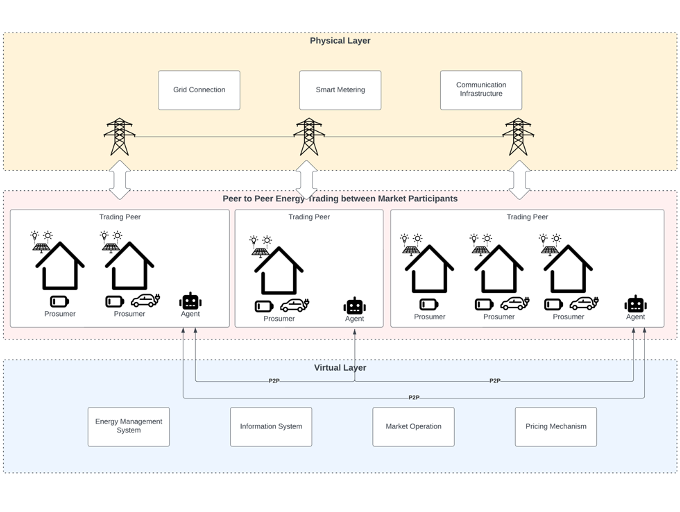M.S. Candidate: Rabia Şeyma Güneş
Program: Information Systems
Date: 07.09.2023 / 11:30
Place: -
Abstract: New technologies included in distributed energy systems have created solutions that allow management of demand and generation variability in electricity grid and costs arising from this variability. Trade between these small grids, has enabled sale of excess energy between each other and purchase of needed energy, thus reducing costs and system constraints. The purpose of this trade is modeled as game of agents mentioned in reinforcement learning, enabling creation of market offers those benefits from each peer. While each peer provides its own electricity demand with both internal resources and other peers. The aim of this thesis is complying with system constraints while providing the demand of each peer in this game aiming at maximum benefit. A novel Multi-Agent Reinforcement Learning model to facilitate very short-term energy trading among peers is suggested in this thesis. The key contributions of this thesis lie in incorporating very short-term load, generation, and price forecasts into framework to enable more accurate decision-making by individual agents. To evaluate performance of the proposed model, it is conducted extensive simulations using real-world data collected from various peers. The results compared with rule-based working agents. The experiment shows incorporating very short-term forecasts significantly enhances ability of agents to adapt to rapidly changing conditions, thereby leading to more efficient and stable energy trading decisions. The use of very short-term forecasts empowers prosumers to make informed decisions in response to dynamic energy market conditions, ultimately contributing to increased grid reliability, energy efficiency, and sustainability.
